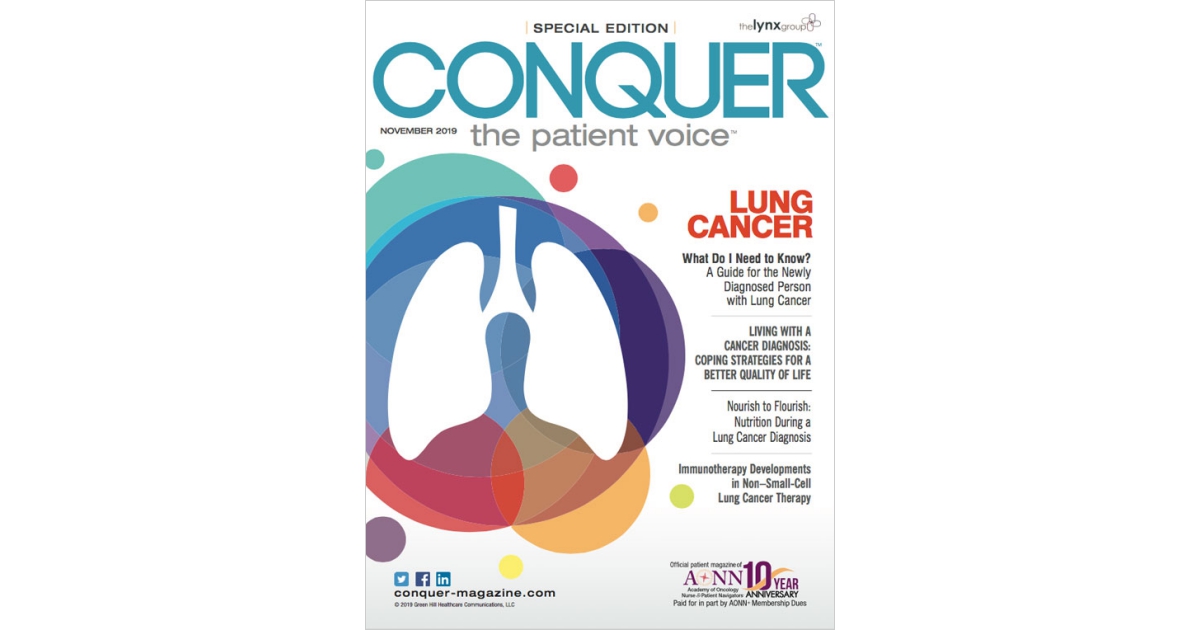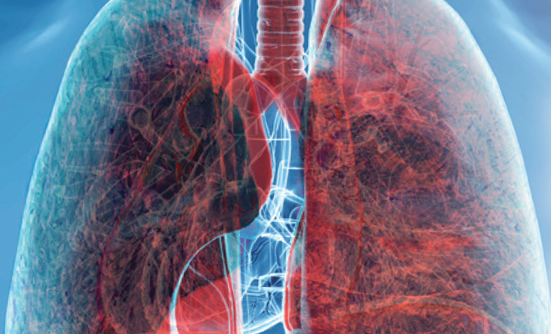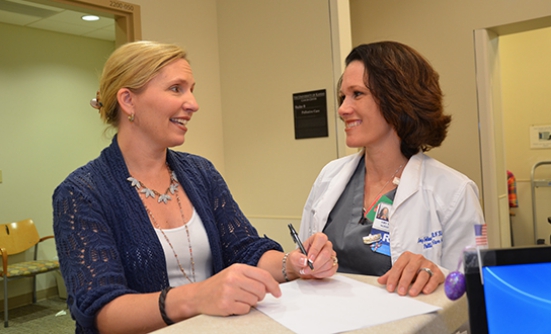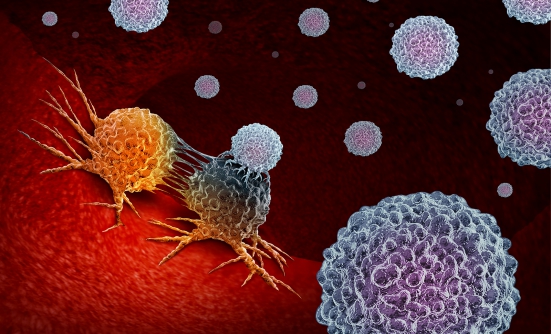November 2019 Volume 6 – Lung Cancer

A new study found that untreated patients with advanced non–small-cell lung cancer (NSCLC) who received a combination of 2 immunotherapy drugs—nivolumab (Opdivo) and ipilimumab (Yervoy)—had increased overall survival (OS) compared with patients who received chemotherapy. In short, the patients on the immunotherapy drug combination lived longer. Read More ›
I am happy to report that patients with lung cancer have more treatment options available to them than ever before, and research is teaching us a lot more about lung cancer biology. Read More ›
The treatment landscape of lung cancer has changed dramatically in the past 5 years. New immunotherapies have significantly improved survival. Learn about your diagnosis and the current treatment options. Read More ›
Becoming educated about your cancer diagnosis will help you develop better coping strategies. Read More ›
Oncology nurse navigator Pixley provides tips on how to take part in your treatment decision. Doctors today are expected to discuss the risks and benefits of each therapy with patients and consider the patient’s preferences. Read More ›
It can be confusing and overwhelming to determine what to eat and what not to eat with a cancer diagnosis. Because of the amount of information available on nutrition and cancer from books, online, or even family and friends, it can be difficult to distinguish fact from fiction. Read More ›
A dietitian offers tips to help patients with lung cancer make better dietary choices during their cancer treatment and beyond. Read More ›
In the past, treating blood cancer almost always involved chemotherapy, which was delivered through an IV at a doctor’s office or hospital. However, in recent years, researchers and scientists have developed cancer medications in pill form, which means that many patients with diseases such as lymphoma and leukemia are now treated with oral medications—tablets and capsules—that they take at home. Read More ›
When first seen by a physician, 25% to 30% of patients with non–small-cell lung cancer (NSCLC) already have locally advanced disease. Standard treatment for these patients has been platinum-based chemotherapy plus radiation (chemoradiation), which achieved a median progression-free survival (PFS) of approximately 8 months and a 5-year overall survival (OS) rate of 15% to 30%. Recent developments in immunotherapy have provided significant advances in the treatment of NSCLC. Read More ›
Patients with ALK-positive (ALK+) non–small-cell lung cancer (NSCLC) whose cancer had spread to the brain responded well to the ALK inhibitor ceritinib, regardless of what prior cancer treatment they had received. This research was recently presented at the 2019 European Society for Medical Oncology Congress in Barcelona by Laura Chow, MD, from Dell Medical School at The University of Texas at Austin. Read More ›














